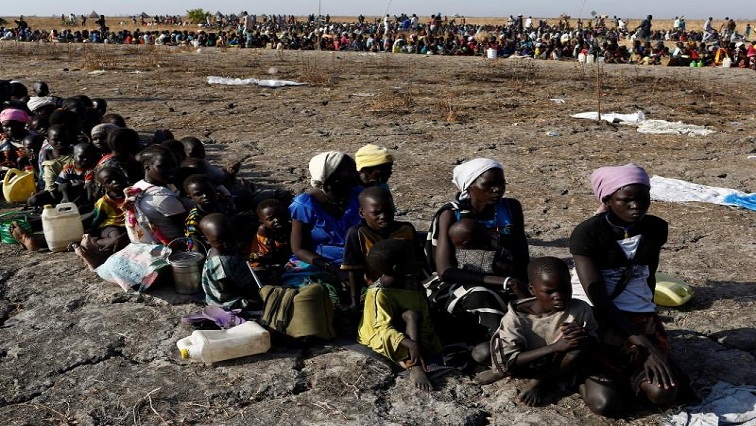The UN’s Food Agency has warned that it will run out of humanitarian food aid in Ethiopia’s Tigray region by Friday as hundreds of thousands of people in the region already face famine conditions. This as the UN’s top humanitarian official Martin Griffiths on Thursday, began a six-day mission to the country pointing to a range of challenges on top of the impacts of the conflict associated with floods, a desert locust infestation, chronic food insecurity and the COVID-19 pandemic.
In the Tigray region alone, an estimated 5.2 million people or about 90% of the population, need humanitarian assistance.
The United Nations Secretary General for Humanitarian Affairs Martin Griffiths will meet with high-level Ethiopian Government officials and representatives of the humanitarian and donor communities during his six-day visit to the country. A visit that comes after the World Food Programme’s Executive Director David Beasley this week sounded the alarm that his agency would run out of food in Tigray by this Friday with 170 trucks laden with supplies unable to reach its intended destination.
LUN Spokesperson Farhan Haq says humanitarian officials continue to report major challenges to accessing Tigray with humanitarian assistance.
“The last convoy reached Mekelle on 12 July, yet an estimated 500 to 600 trucks of relief items are needed every week to meet mounting humanitarian needs. All roads into Tigray from the Amhara region remain closed due to restrictions and insecurity. The only possible road through the Afar region is inaccessible since 19 July, following an attack on a World Food Programme convoy a day earlier.”
Ethiopia’s Government has blamed the aid delivery problems on forces loyal to the Tigray People’s Liberation Front, as the eight-month-old war appears to be spreading to other parts of the country’s northern regions despite a unilateral ceasefire declared by the Government in June on humanitarian grounds.
“Nutrition partners will also soon run out of the essential Ready to Use Formula to treat an estimated 4,000 severely malnourished children every month,” continues Haq.
“A lack of supplies, fuel and communication equipment is expected to effectively halt humanitarian response in two weeks. Fuel shortages have particularly affected health assistance, including vaccinations and other life-saving services, and risk disrupting access to safe water for up to 450,000 people. At least 200,000 litres of fuel, or 4 to 5 tankers, are needed weekly to enable operations to continue. We continue to call for the restoration of basic services, electricity, communications, commercial flights and the banking system.”
Last week, Tigrayan forces pushed east into the neighbouring Afar region, vowing to target Amhara forces fighting alongside the federal army that this week bolstered its ranks with 3000 new recruits at a send-off in the nation’s capital. This, as the drums of war continue to raise concern, if the words of Ethiopia’s Defence Minister Kenea Yadeta are anything to go by.
“As we all know in world history, Ethiopia is the country that has kept its sovereignty. What they want is to humiliate this country which has always kept its sovereignty, but Ethiopians will never allow this.”
The UN has called for all parties to the conflict to protect civilians, humanitarian workers and their assets in compliance with international humanitarian law. The global body warned in early July that the region faced a worsening famine with 400-thousand people in Tigray already living under such conditions while an additional 1.8 million were on the brink of famine. And with fighting unlikely to end in the short-term — the implications for civilians in that region could be catastrophic.


